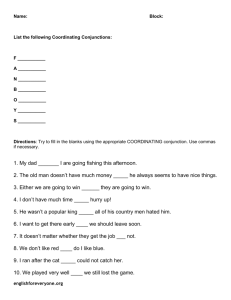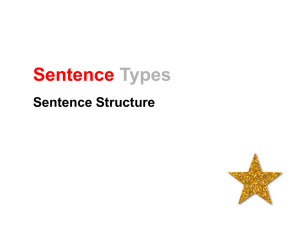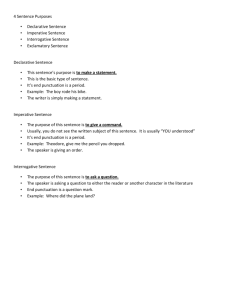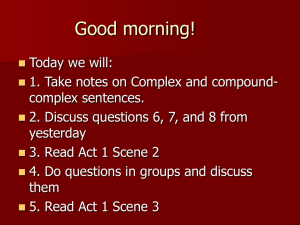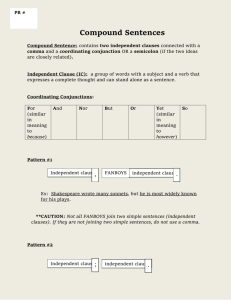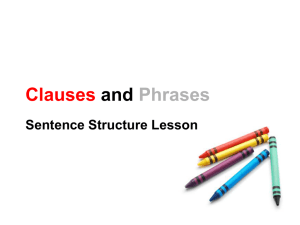phrase and clause background
advertisement
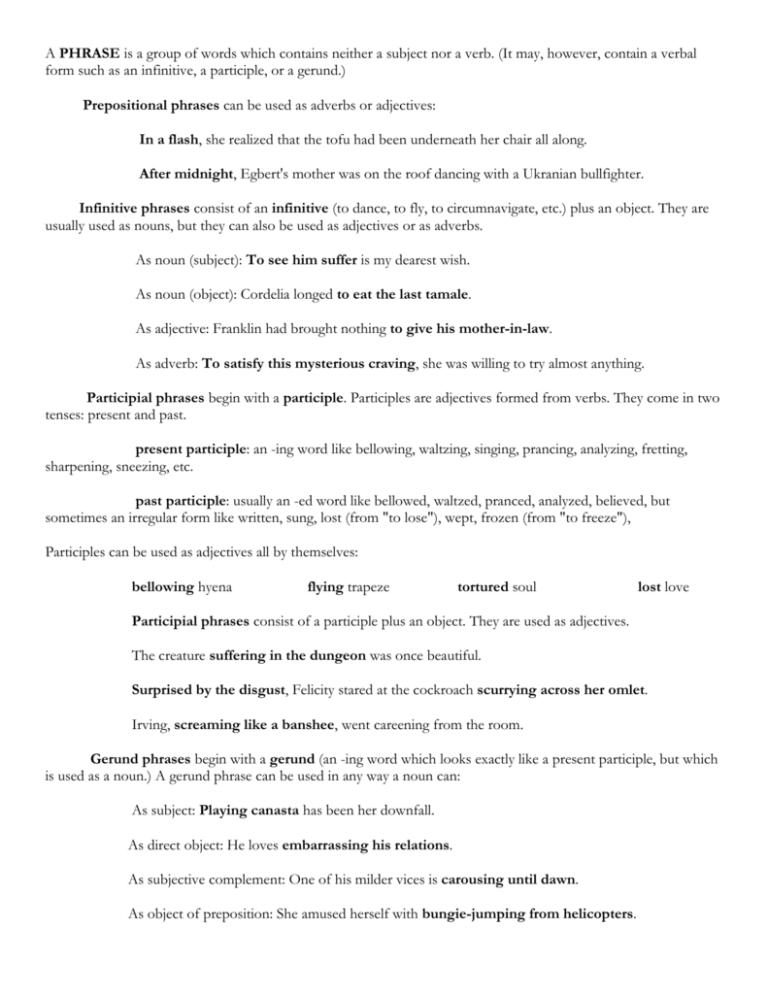
A PHRASE is a group of words which contains neither a subject nor a verb. (It may, however, contain a verbal form such as an infinitive, a participle, or a gerund.) Prepositional phrases can be used as adverbs or adjectives: In a flash, she realized that the tofu had been underneath her chair all along. After midnight, Egbert's mother was on the roof dancing with a Ukranian bullfighter. Infinitive phrases consist of an infinitive (to dance, to fly, to circumnavigate, etc.) plus an object. They are usually used as nouns, but they can also be used as adjectives or as adverbs. As noun (subject): To see him suffer is my dearest wish. As noun (object): Cordelia longed to eat the last tamale. As adjective: Franklin had brought nothing to give his mother-in-law. As adverb: To satisfy this mysterious craving, she was willing to try almost anything. Participial phrases begin with a participle. Participles are adjectives formed from verbs. They come in two tenses: present and past. present participle: an -ing word like bellowing, waltzing, singing, prancing, analyzing, fretting, sharpening, sneezing, etc. past participle: usually an -ed word like bellowed, waltzed, pranced, analyzed, believed, but sometimes an irregular form like written, sung, lost (from "to lose"), wept, frozen (from "to freeze"), Participles can be used as adjectives all by themselves: bellowing hyena flying trapeze tortured soul lost love Participial phrases consist of a participle plus an object. They are used as adjectives. The creature suffering in the dungeon was once beautiful. Surprised by the disgust, Felicity stared at the cockroach scurrying across her omlet. Irving, screaming like a banshee, went careening from the room. Gerund phrases begin with a gerund (an -ing word which looks exactly like a present participle, but which is used as a noun.) A gerund phrase can be used in any way a noun can: As subject: Playing canasta has been her downfall. As direct object: He loves embarrassing his relations. As subjective complement: One of his milder vices is carousing until dawn. As object of preposition: She amused herself with bungie-jumping from helicopters. Independent Clauses A clause is a group of words containing at least a subject and a verb (the baby ate), and frequently it lets its hair down by containing some kind of a complement as well (the baby ate the goldfish). There are two kinds of clauses: independent and dependent. Like John Wayne, an independent clause can stand alone. I shall haunt you till your dying day. It may, however, become part of a larger sentence if it is connected to other clauses and phrases by a semicolon or by a coordinating conjunction. I shall haunt you till your dying day; I shall haunt your friends and relations after that. I shall haunt you till your dying day, and I shall haunt your friends and relations after that. If you try to join two independent clauses with a comma, your reader will regard you with horror as the perpetrator of a comma splice. Don't do it. Use a semicolon or a coordinating conjunction instead. The coordinating conjunctions that join independent clauses include and, but, or, nor, neither, yet, for, or, and so. The coordinating conjunction does not belong in either clause, but merely joins them together. Put a comma before the coordinating conjunction (but note that this particular punctuation rule is so commonly ignored -- particularly in short sentences -- that it is in danger of disappearing). He fiddled with his cufflinks, and he chewed on his tie. Fanny Dooley likes sunbathing, but she loves mooning. She had lost her castanets, so she used her uncle's dentures. The cat had broken their Ming vase, yet he did not seem to care. Dependent clauses and the conjunctions they need A dependent clause has a subject and a verb, and looks exactly like an independent clause except for one small thing: it is introduced by either a relative pronoun or a subordinating conjunction, which makes the clause grammatically "dependent" on the rest of the sentence. He fiddled with his cufflinks before he chewed on his tie. If you're very sweet to me, I'll let you see my collection of exotic tofu sculptures. Relative pronouns include who, whom, which, that, what, whoever, whatever, and whichever. They "relate" the material in the clause to an antecedent that appears elsewhere in the sentence. In "the bag of potato chips that I ate," the "that" introducing the clause relates back to "bag of potato chips." Subordinating conjuctions are best classified according to the kind of relationship they express between clauses: When: before, after, when, until, while, as soon as, as long as. Where: where, wherever Why/How: so that, in order that, so Why: because, since Why/How: if, unless, provided that, except Why/How: although, though, even though, despite, in spite of What to do with a dependent clause Dependent clauses like to make themselves useful within their sentences; they may act as nouns, as adjectives, or as adverbs. Dependent clauses as nouns: Dependent clauses used as nouns can be introduced either by a relative pronoun or by a subordinating conjunction (that, whether). **I wonder whether ontology recapitulates phylogeny. [direct object] **Whatever is lurking under the bed has started to snore. [subject] **She knew that her fiancé had an irrational fear of accordions. [direct object] Dependent clauses as adjectives: Dependent clauses used as adjectives can be introduced by relative pronouns. **Fred, who had long adored her from a distance, finally proposed as their canoe waterfall. [modifies Fred] couch. plunged over the **The wrestler who is being tossed out of the ring is wearing the toupé that he found under his Dependent clauses as adverbs: A dependent clause introduced by subordinating conjunction can act the same way as a one word adverb. Put a comma after the dependent clause if it precedes the main clause; do not use a comma if the dependent clause comes after the main clause. When: As soon as they were married, she began to miss her bulldog. Where: The salesman swore to follow Egbert wherever he might go. Why/How: He only ate the Doritos so I wouldn't eat them myself. Why: She married him because he looked just like her bulldog. Why/How: If our guests hear loud screams coming from the tower, they may begin to suspect that Uncle Hubert is still alive. RELATIVE PRONOUNS (ADJECTIVES) THAT WHICH WHO WHOM WHOSE NOUN CLAUSE INTRODUCERS THAT WHATEVER WHO WHAT WHOEVER WHOMEVER WHOM SUBORDINATE CONJUCTIONS (ADVERBS) AFTER AS LONG AS BECAUSE HOW IN ASMUCH AS SINCE THOUGH TILL (‘TIL) ALTHOUGH AS MUCH AS BEFORE IN ORDER THAT WHEREAS SO THAT WHILE UNLESS AS AS SOON AS EVEN IF IF WHEREVER WHERE WHENEVER WHEN AS IF AS THOUGH EVEN THOUGH LEST ONCE NOW THAT PROVIDED THAT THAT UNTIL
